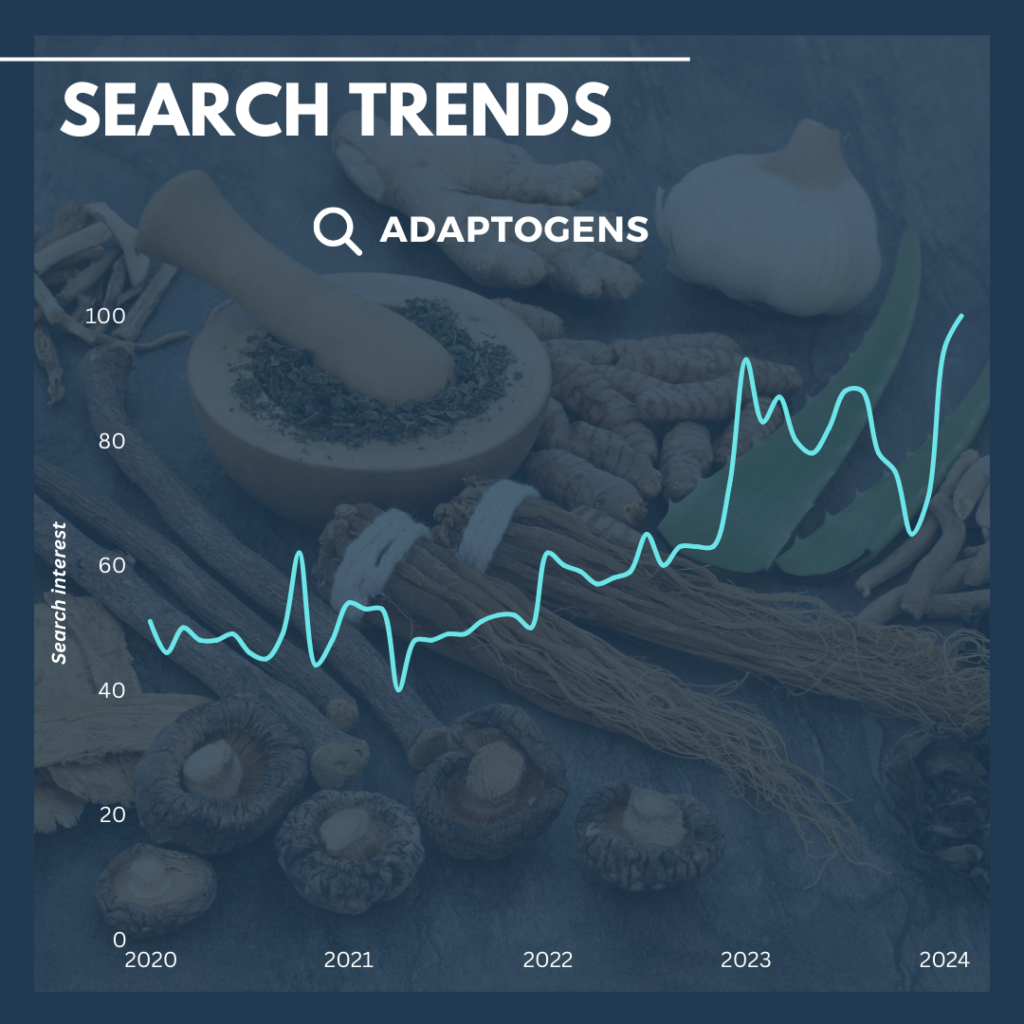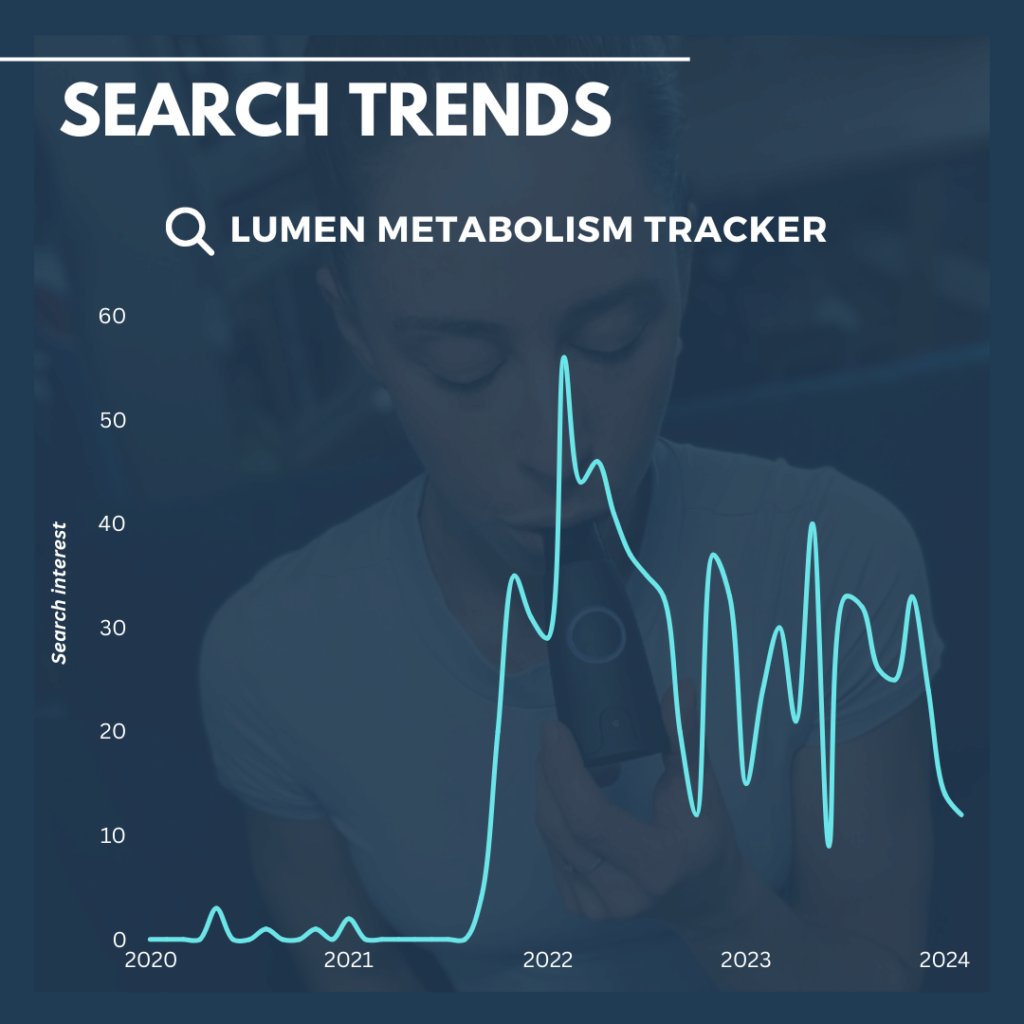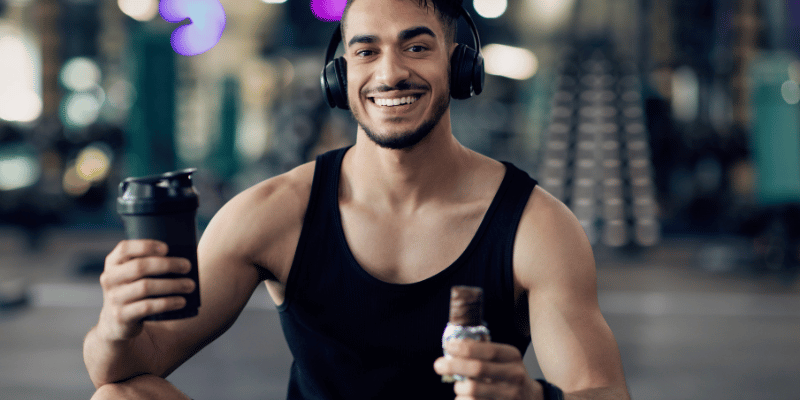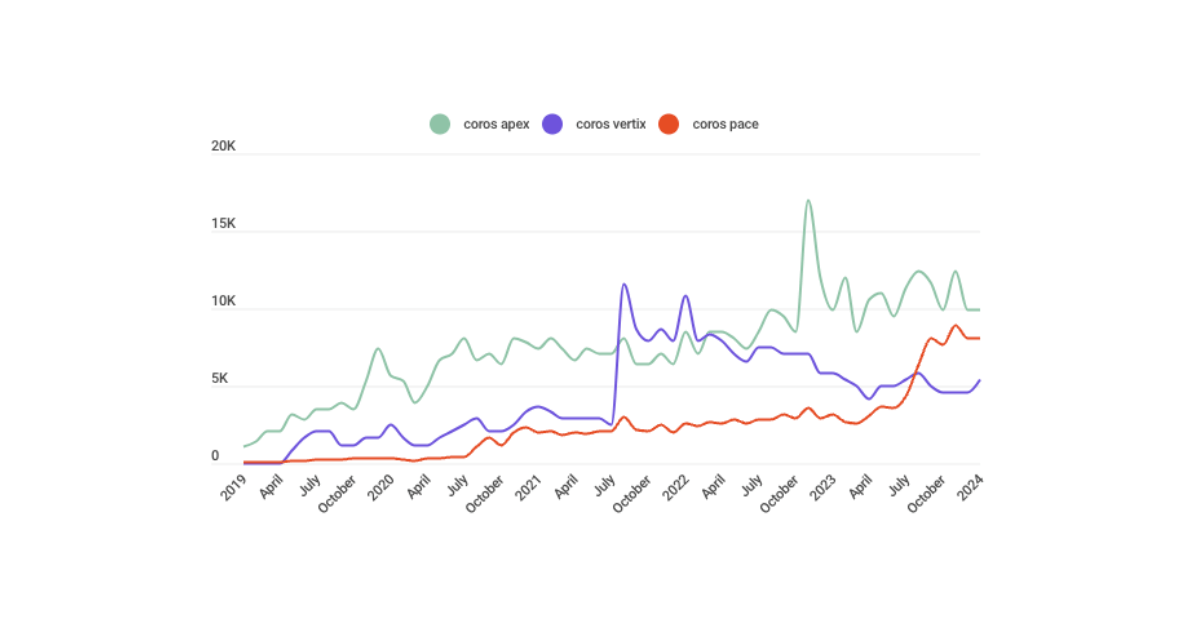As we take the first few strides into 2024, the sports nutrition landscape continues to evolve. In this article, we’ll delve into the top trends shaping sports nutrition for the year ahead by analysing online search data and behaviour. Online consumer search behaviour offers insights into what athletes and fitness enthusiasts are seeking to enhance their performance, recovery, and overall well-being.
Below, we explore these trends and their implications for businesses in the sports nutrition sector.
Creatine and Clear Whey Protein: Priorities for Muscle Development
Bodybuilders and individuals focused on building lean muscle mass continue to prioritise creatine and clear whey protein. Creatine remains popular for its benefits in boosting energy and enhancing muscle. However, clear whey protein is gaining attention as a lighter, more palatable alternative to traditional whey protein for supplementation.
Implications for Companies: The sustained popularity of creatine and the emerging preference for clear whey protein indicate a market ripe for innovation in product formulation and marketing strategies. Companies should consider diversifying their product lines to include clear whey protein options, highlighting their benefits for muscle development and recovery. Creatine products should continue to be a staple, with emphasis on purity, efficacy, and added health benefits to stand out in a crowded market.


Energising Workouts and Endurance: From Gels to Drinks
The quest for sustained energy during exercise is leading to an upward trend in searches for energy gels, a convenient and rapid source of carbohydrates. Furthermore, youth culture is still significantly influencing the energy drinks market, with products like Prime Energy capturing the attention of younger consumers seeking a quick energy boost with appealing branding and flavours.
Implications for Companies: The upward trend in energy gels and the cultural drive behind energy drinks like Prime Energy suggest a growing segment of consumers looking for convenient energy solutions. Companies should explore novel formulations and packaging to cater to the on-the-go lifestyle of younger athletes. Additionally, aligning with youth culture through branding and social media engagement can enhance market penetration.


Refuelling and Recovery: Quality and Speed
The focus on recovery is intensifying, with a greater emphasis on quality protein sources, such as clear whey protein. However, plant-based proteins may see a plateau in interest in 2024, as consumers explore other innovative protein options. Ingredients supporting immune response and reducing post-exercise inflammation are gaining traction, linking immunity directly with recovery. The growing interest in gut health and its link to overall wellness is driving this trend. People are actively seeking adaptogens like Ashwagandha and Turmeric for their stress-relief and recovery benefits. They are also exploring innovative methods such as IV therapy for quick nutrient absorption.
Implications for Companies: The focus on recovery highlights the need for high-quality protein products and supplements that support immune response and reduce inflammation. Companies should invest in research and development to formulate products with bioavailable ingredients and fast-absorbing proteins. The interest in adaptogens and IV therapy for recovery presents an opportunity for partnerships and product line expansion to include these emerging trends.


Personalisation: The Next Frontier in Sports Nutrition
Athletes and fitness enthusiasts are increasingly seeking personalised solutions, with innovations such as continuous glucose monitoring (CGM) and metabolic health tracking devices expected to become more prevalent. This move towards personalisation is further influenced by an interest in gut health and the potential of CGM technology to tailor nutritional strategies to individual metabolic responses. Also, the integration of artificial intelligence (AI) in sports nutrition is enabling the development of personalised nutritional assessments, allowing for the creation of highly tailored nutrition products and services. AI’s capability to analyse individual responses to different nutrients opens up new avenues for personalised nutrition solutions.
Implications for Companies: The shift towards personalised nutrition, driven by technologies like continuous glucose monitoring, requires companies to adopt a more individualised approach to product development and marketing. Offering personalised nutrition plans, integrating technology for real-time feedback, and providing customisable product options could become key differentiators in the market. Although, despite the growing interest in personalised nutrition, many individuals find themselves lacking the necessary guidance to fully understand and utilise personalised nutrition services effectively. The personalised nutrition industry is thus faced with the challenge of ensuring that consumers receive adequate support. This includes providing expert guidance and ensuring that the benefits of personalised nutrition align with consumer expectations.


The Digital Connected Experience: Holistic Insights
The desire for a digitally connected experience in sports nutrition is growing. Particularly, as athletes want to monitor and understand the relationship between nutrition, exercise, and fitness performance. This holistic approach is driven by the demand for personalisation and a comprehensive view of health and performance. Brands such as Zoe Nutrition and Lumen are benefiting from this trend are poised for further growth in 2024. By creating a seamless digital connected experience brands will be in a better position to offer personalised services and holistic health insights. An example of how brands are moving into this space, Samsung announced in August 2023 the launch of Samsung Food. A personalised and AI-powered meal preparation and food assistant app. Chanwoo Park, Executive Vice President and Head of the Service Biz Group of the Digital Appliances Business at Samsung Electronics further explains the features of the app. “By connecting digital appliances and mobile devices across the Samsung ecosystem and assisting users from shopping list to dinner plate, Samsung Food is using advanced AI capabilities to deliver a highly personalised, all-in-one food experience that users can control straight from their palms.”
Implications for Companies: In today’s fitness world, enthusiasts and athletes use smart devices and apps extensively to track their progress and nutrition. They increasingly expect a digital environment that unifies all the data into personalised insight. To meet this demand, brands should consider partnerships with tech firms and invest in digital infrastructure. This will help unify health, nutrition, and fitness data sources, enhancing user experience and staying competitive.


Women’s Sports Nutrition: Tailored and Informed
There’s a burgeoning emphasis on sports nutrition specifically tailored to women. This is due to recent research into hormonal health, reproductive cycles, and their impact on exercise and nutrition. This trend reflects a broader movement towards inclusivity and evidence-based product development in the sports nutrition industry. As you can see in the images below, there is increasing interest in women’s hormonal health in topics such as luteinising hormone (LH). Women increasingly want to understand how lifestyle factors such as nutrition affect their health specifically. Brands and apps such as Premom are increasing in interest to help women track their ovulation cycles and help understand the impact lifestyle factors.
Implications for Companies: The increasing focus on women-specific sports nutrition necessitates a nuanced understanding of women’s health and nutritional needs. The industry can benefit from the collection through the use of smart devices and technology. Therefore, companies should consider conducting targeted research to develop products that address the unique challenges and requirements of female athletes. Marketing strategies should also reflect an inclusive approach, recognising the diversity within the women’s fitness community.


The Mind-Body Connection: Mental Health Meets Physical Performance
The connection between mental health and physical performance is becoming increasingly recognised. Nootropics is emerging as a popular choice among athletes and fitness enthusiasts for enhancing mental focus and well-being. This trend underscores the holistic perspective of health that integrates mental and physical aspects.
Implications for Companies: The growing recognition of the mind-body connection in sports performance presents an opportunity for companies to explore nootropics and other mental health-supporting supplements. Expanding product lines to feature supplements improving focus, mood, and cognitive function would cater to a holistic approach to fitness.


Increased Awareness of Sports Nutrition Classed as Ultra-Processed Foods
Sports nutrition are classed as ultra processed foods. The awareness of the drawbacks of ultra-processed foods is leading fitness enthusiasts to scrutinise the manufacturing processes of supplements and sports nutrition products. Furthermore, they are favouring cleaner and less processed options.
Implications for Companies: The consumer shift away from ultra-processed foods challenges companies to be transparent about their manufacturing processes. It will also push manufacturers to emphasise the use of whole, minimally processed ingredients. This trend may require reformulating products to meet cleaner label standards. Also, it will require investing in marketing campaigns that highlight the natural and wholesome aspects of their offerings.


Functional Foods and Ingredients: Performance Elevators
Functional foods and ingredients continue to capture the interest of athletes and fitness aficionados. There are several key substances poised to make an impact in 2024:
- Bone Broth: Touted for muscle enhancement and recovery.
- Vitamin B12: Essential for energy production.
- Adaptogens: Like ginger and turmeric, recognised for their fatigue-reducing and recovery-aiding properties.
- Nootropics: For mental focus and acuity.
- Berberine: Known for its potential in blood sugar regulation and weight management.
Implications for Companies: The interest in functional foods and specific ingredients like bone broth, vitamin B12, adaptogens, and nootropics indicates a market eager for products with targeted health benefits. Companies should consider incorporating these ingredients into their products. However, making sure they are backed by scientific research. This will cater to consumers seeking performance-enhancing and health-promoting supplements.


Outlook and Predictions for Sports Nutrition in 2024
In 2024, the sports nutrition industry is poised for a transformative phase. There is a shift towards personalisation, driven by technologies like continuous glucose monitoring. Furthermore, an increased focus on mental health and gender-specific nutrition, will lead to more customised and inclusive product offerings. This evolution reflects a broader industry trend towards cleaner, functionally rich ingredients and sustainable practices. This aligns with consumers’ growing health consciousness and environmental concerns.
These industry shifts will significantly impact consumer search behaviours in 2024 and beyond. Individuals will likely seek out products and brands that align with their specific health goals, dietary preferences, and ethical values. Ultimately, leading to more refined and targeted online searches. Queries may become more complex, incorporating specific ingredients, health benefits, and personal health data insights. This indicates a move away from one-size-fits-all solutions towards more personalised, informed choices. As consumers become more educated and empowered, we can expect a surge in demand for digital tools and platforms. Consumers will seek out tech that offer comprehensive health and fitness tracking and further integrating nutrition with overall wellness and performance optimisation.





